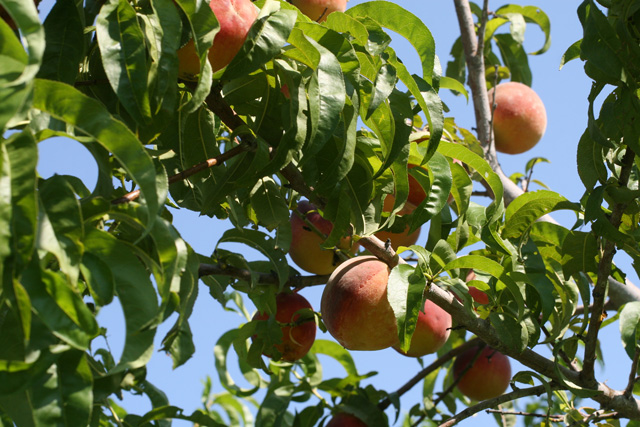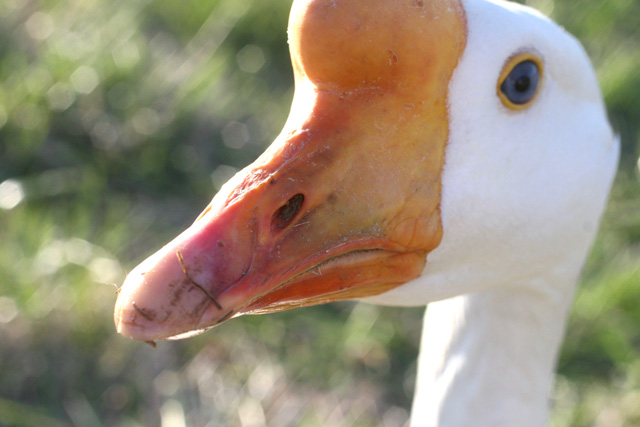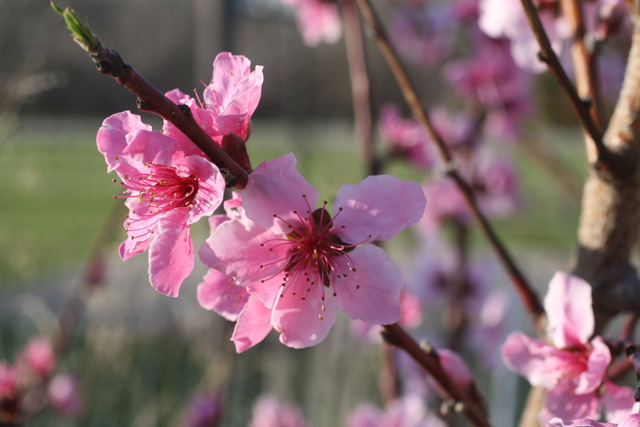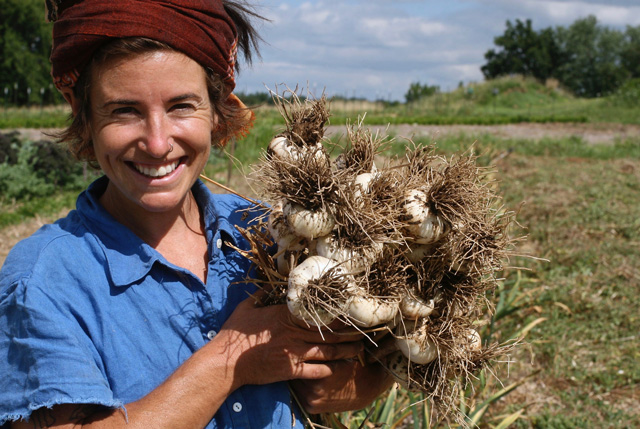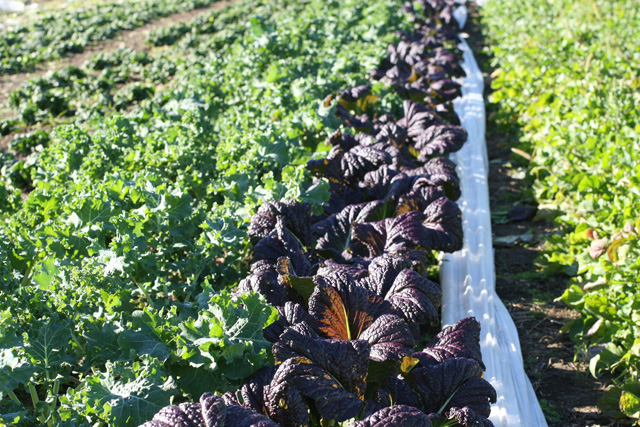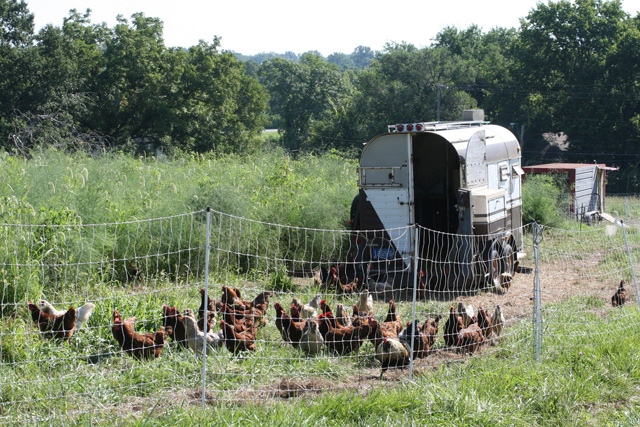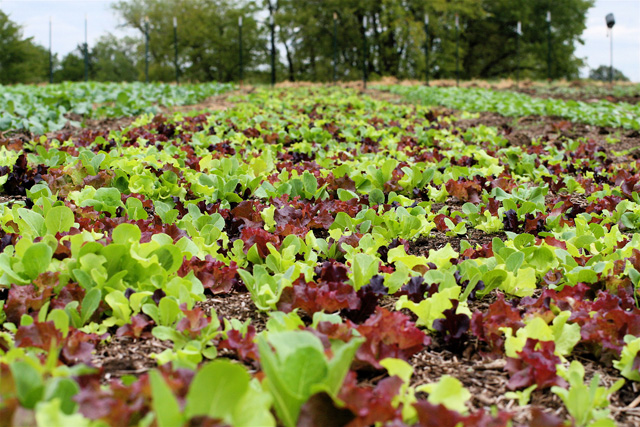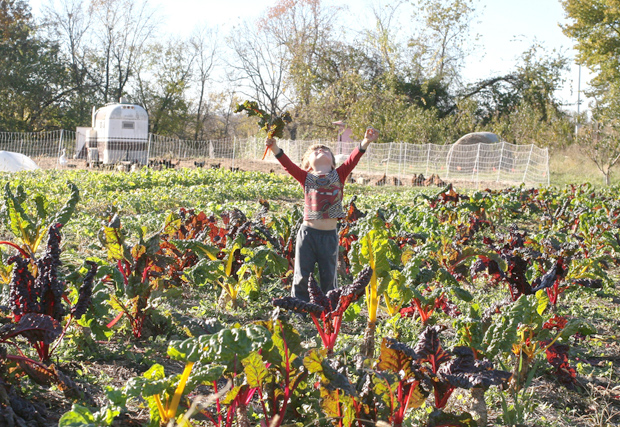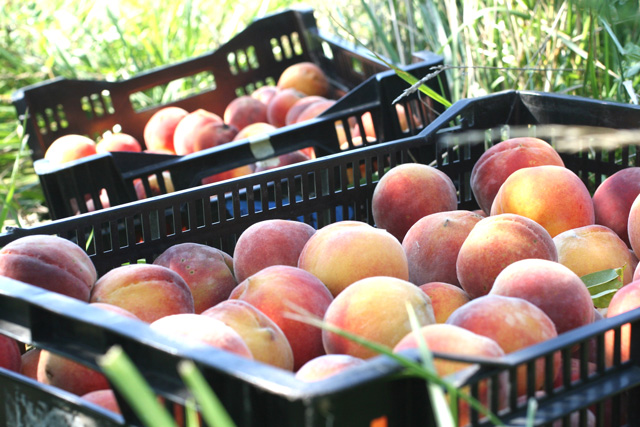
Our holistic farm practices
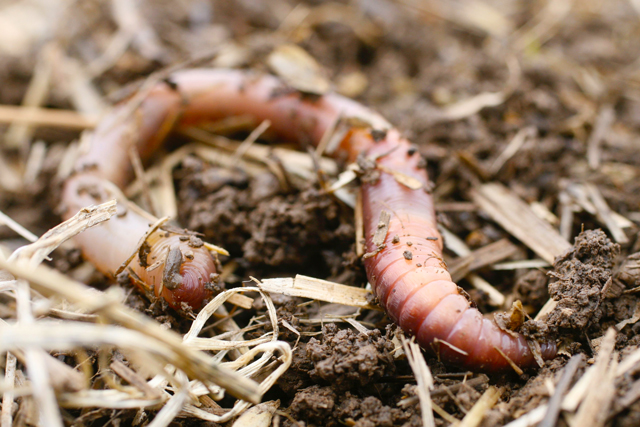
The Soil is Alive!
Soil is the building block for all life on our farm. As farmers & land lovers, we are fiercely committed to soil health, and thus the greater health of our community. Environmental ethics guide each and every decision we make - both in life and in the field. Within this quest to farm as responsibly as possible, we've developed a unique regenerative growing method to enhance the life in the soil. The result is nutrient-dense, deeply flavorful foods for discerning palates and enlightened eaters.
How We Grow
THE FOUR CORNERSTONES:
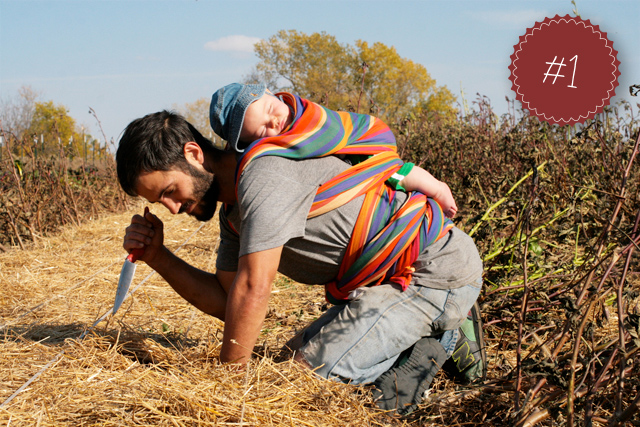
NO TILL
Our bio-intense farming system was founded upon a deep-mulch no-till approach coupled with chicken-power. With the absence of tillage, soil life is activated as worms, bacteria, and fungi work in harmony to produce the ideal conditions for plant roots. As our system evolved, we abandoned our purist no-till approach to address bigger problems such as drainage & perennial weed pressure. Pigs entered the mix in 2018, as did cover-cropping, and shallow tractor cultivation. Today, we have a hybrid system that celebrates soil health with minimal cultivation, lots of hand-power, heavy mulch, and heavy animal rotations. Our crops thrive without organic sprays or irrigation!
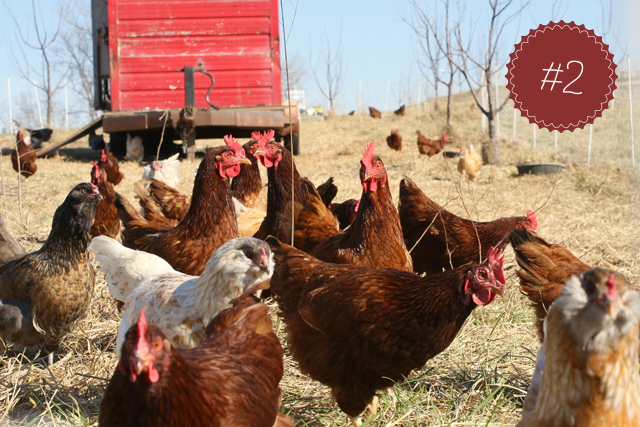
ANIMAL POWER
Two hundred laying hens rotate around the farm to fertilize, weed, and prep fallow vegetable fields. These feathered friends scratch up weeds, eat crop residue & pests, and provide the necessary fertility for future plantings. Gorgeous eggs with golden yolks are a tasty by-product. Heritage pigs move through fallow fields as well, tilling-in cover crops with their powerful snouts, rooting up perennial weeds, fertilizing, and cycling nutrients. As a result, wholesome pastured pork of the highest quality is available to market customers each week. These remarkable animals are invaluable to our crop system, providing a vital layer to the farm's complex and fascinating ecosystem!
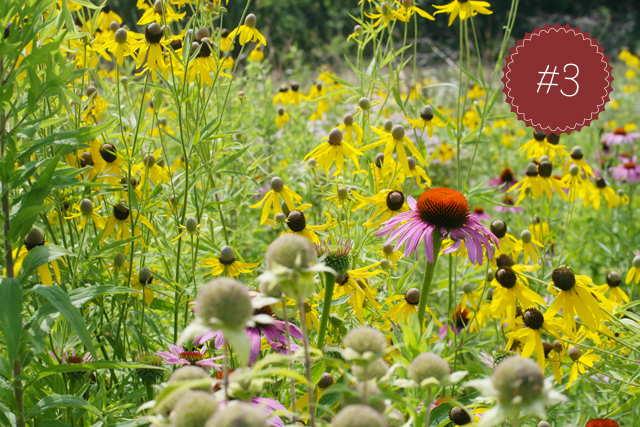
COMPANION PLANTING
We plant a variety of native plants, wildflowers & herbs to attract beneficial insects and pollinators. These extraordinary little "warriors" combat pest pressure in our vegetable fields & orchards. As a result, vegetable crops at URBAVORE are never sprayed with pesticides, including those approved for certified organic farms.
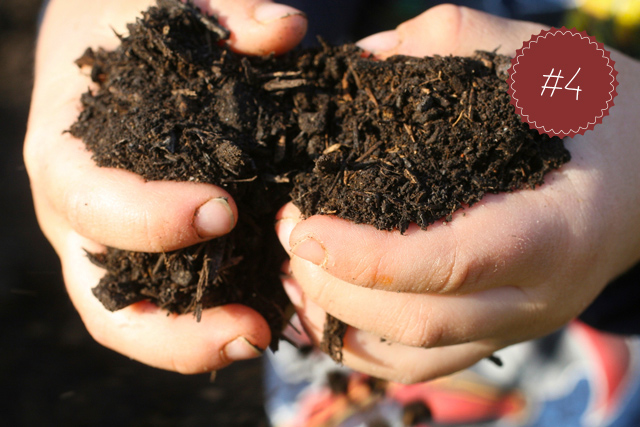
COMPOST
Heavy compost applications play a key role in our crop production (providing organic matter, beneficial microbes, and fertility). Direct-seeded crops are covered with compost instead of soil. Transplanted crops receive generous handfuls in each and every planting hole. Various crops like melons & summer squash are planted into rich compost mounds.
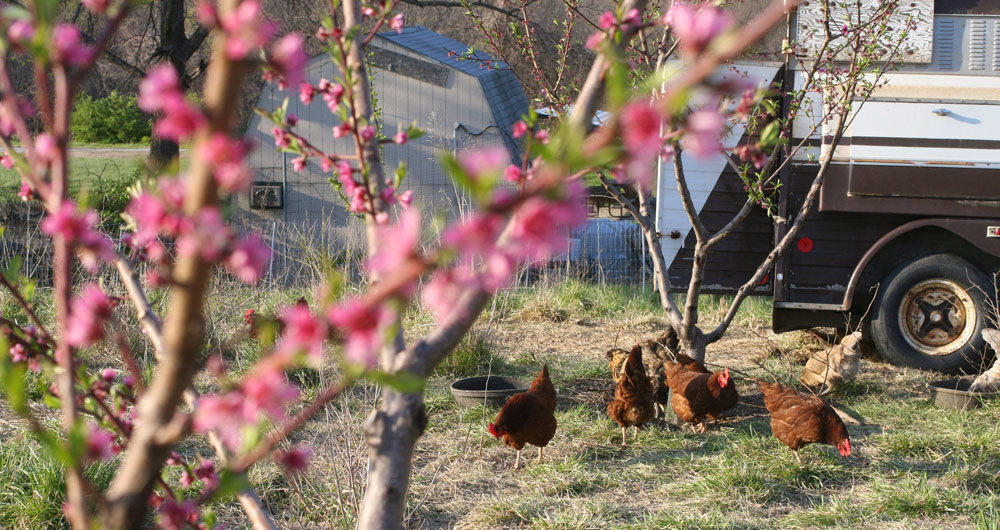
Animal Care & Welfare
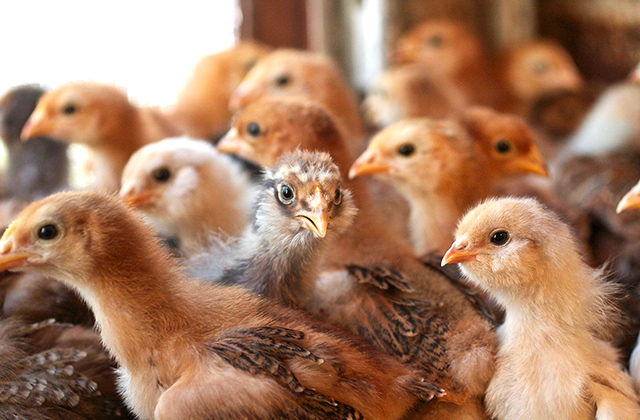 As a family, we eat clean food. As farmers, we grow clean food. That ethic is paramount when raising animals.
As a family, we eat clean food. As farmers, we grow clean food. That ethic is paramount when raising animals.
We respect our animals as we want to be respected. As a result, our chickens and pigs are pastured and rotated throughout our farm, eating bugs, grasses, and weeds from dawn till dusk. We supplement their pasture-based diet with certified organic grain. We never administer antibiotics, hormones, or chemical wormers to our animals.
Our 200 laying hens roam within electric netting in two separate flocks. The netting keeps predators like foxes, raccoons, and skunks from killing chickens. We keep two or three roosters with each flock, as well as a goose, to help ward off owls and hawks. Each flock has access to between 5,600 to 10,000 square feet of pasture at any time, and they are moved every three to four weeks.
Twenty heritage hogs are raised on pasture each year. We purchase weaned six-week old piglets from responsible growers and rotate them through our fallow vegetable fields. Specific cover crops are seeded for the pigs to eat and turn under (rye, oats, peas, buckwheat, turnips and more). The pigs feed on these crops in a 3,600 square foot pasture, and their pasture moves every two weeks to a new, lush area, dense with forage. The crop residue feeds the soil, as does the pig manure, providing nutrients for vegetable crops in the following season. As the pigs forage and root deeply with their powerful snouts, they weed our vegetable fields, ridding them of some of our most difficult tap-rooted perennial weeds, as well as reducing annual weed populations. All of this results in some very happy & healthy pigs, improved soil for crop production, and wholesome pork products for discerning consumers.
Orchard Management
 The very idea of organic fruit growing in Missouri will make most conventional growers laugh. In this humid climate, rife with every pest and disease in the book, organic fruit is the great oxymoron. But after Farmer Dan worked on an orchard with every delicious deciduous fruit under the sun, there was no alternative than to foolishly undertake diversified orcharding at URBAVORE.
The very idea of organic fruit growing in Missouri will make most conventional growers laugh. In this humid climate, rife with every pest and disease in the book, organic fruit is the great oxymoron. But after Farmer Dan worked on an orchard with every delicious deciduous fruit under the sun, there was no alternative than to foolishly undertake diversified orcharding at URBAVORE.
We have planted tree fruits and berries throughout our sloping farm, including 100 full-sized apple trees, about 50 peach trees, and smaller plantings of European and Asian pears, plums and sour cherries. We grow an abundance of strawberries and blackberries, as well as blueberries. While berries have been an abundant market offering each season, tree fruits continue to pose many challenges despite attentive management.
We spray our trees as often as we can with holistic sprays that boost tree immunity, colonize the orchard with beneficial fungi and bacteria, and suppress disease. These sprays are comprised of liquid fish, neem oil, essential microbes (EM), and kelp. We also spray kaolin clay, which deters (but does not kill) certain pests from damaging the fruit. We perform well timed sprays of bacillus thuringiensus (Bt), an organic, bacteria-based pesticide that narrowly targets caterpillars and other soft bodied insects. All of those sprays, at a substantial cost, keep the trees healthy and enable us to get some marketable tree fruits.
Our fruits (along with the rest of our crops) are primarily pollinated by wild pollinators, not honeybees. We have abundant habitat for pollinators to thrive in. Apart from the trees, we cultivate wildflowers and certain herbs to attract wild bees and wasps to our farm. That bio-diversity also attracts plenty of beneficial insects that compete with the would-be fruit destroyers. Diversity also comes in fungi, with mycorrhizae and mushrooms emerging from the orchard floor amidst the wood mulch. Chickens also help to keep the trees fertilized, and feed on bugs. Eventually, pigs will move through orchard grounds to consume pests in fallen fruit.
Resource Management
 URBAVORE is almost entirely off-grid. Our water, our heat, and most of our electricity are produced on our land. With only 13.5 acres, our resources are limited, and we have to carefully consider how we use them.
URBAVORE is almost entirely off-grid. Our water, our heat, and most of our electricity are produced on our land. With only 13.5 acres, our resources are limited, and we have to carefully consider how we use them.
Throughout the United States, 80% of water use goes to agriculture. At URBAVORE, our farm & home use less water than the average American household while feeding hundreds of people every week. The water we use for drinking, cooking and washing produce is drawn from a quarter-acre pond that catches water exclusively from our land. The water we use in our vegetable production and for livestock is recycled from the waste water of our house. Our crops rely on rainfall, and do not receive any irrigation. Our "no-till" agricultural practices store water in the soil, even through drought.
All of our electrical needs are produced from a 10kW solar array that is tied to the utility grid. We produce four times more electricity than we use, and feed energy back to the grid during the day. At night, we pull electricity from the grid, rather than attempting to store electricity in batteries that would eventually become hazardous waste. Despite our energy surplus, we still nag the kids to turn off lights!
Our home is designed to require little to no heating, capturing heat from both the sun and the earth. When we do heat the home, we heat with wood. We manage the trees on our land, too, and we are conscious to not over-harvest our tree resources. During the winter, we cook on our wood-burning stove. It's pretty amazing to be able to heat the home and cook a big meal from the same few logs.
Biological Systems
 American agriculture, sustainable or conventional, suffers from generations of specialization that have destroyed the efficiencies of natural systems. Modern agricultural production is linear, with inputs purchased, outputs sold, resources burnt in engines and turbines, and waste sent down river. URBAVORE juxtaposes this ubiquitous reality, acknowledging that healthy crops depend on a diverse landscape of abundant plants, animals, insects, fungi and bacteria. This complex symbiosis is essential to the success of our farm as both a business and an agent for environmental change.
American agriculture, sustainable or conventional, suffers from generations of specialization that have destroyed the efficiencies of natural systems. Modern agricultural production is linear, with inputs purchased, outputs sold, resources burnt in engines and turbines, and waste sent down river. URBAVORE juxtaposes this ubiquitous reality, acknowledging that healthy crops depend on a diverse landscape of abundant plants, animals, insects, fungi and bacteria. This complex symbiosis is essential to the success of our farm as both a business and an agent for environmental change.
At any given time we are layering species, recycling resources, and creating bio-diverse ecosystems with reciprocal benefits to animals, plants, soil, and people. Chickens run through spent veggie fields, cleaning up crop debris, eating harmful pests, killing weeds, fertilizing, and creating lush organic matter to enhance the soil food web. This act is essential for the health of future crops, while simultaneously providing poultry with dense nutrients and habitat. Delectable eggs with nourishing golden yolks are a by-product, providing our farm with another stream of income, and keeping our customers happy & well-fed. Pigs play a similar roll to chickens: enhancing fields that will be dedicated to future crops. Fallow vegetable fields are seeded down with cover crops, many which flower and create ample habitat for pollinators and other beneficial insects. Once the plants reach proper maturity, the pigs move-in. Their powerful snouts mimic a tiller or a plough, turning under nutrient-rich cover crops to feed the soil. At the same time, the pigs consume this flavorful forage (reducing feed costs), recycling it through their bodies, fertilizing, and up-rooting problematic perennial weeds. The pigs replace gas-powered equipment and create an effective natural system for food production. Wholesome pork is a by-product, providing the farm with yet another income stream, and another product to keep our customers engaged & well-fed.
As our farm evolves, we hope to continue building upon biological systems for land management & food production. Future plans include sheep for mowing and goats for woodland management.
Urban Impact
 Unfortunately, our cities are not as ecologically diverse or symbiotic as our farm. For that very reason, our farm is an asset to Kansas City. Our farm is an oasis, where nature lives and breaths and purifies the toxins of our urban environs. It is a safe-haven for insects and wildlife. We have witnessed the cacophony of natural sounds become amplified with each year. In June, the frogs and toads are deafening. The cicadas, equally so in August. And though the traffic still churns away on the nearby highway, at URBAVORE nature is thriving!
Unfortunately, our cities are not as ecologically diverse or symbiotic as our farm. For that very reason, our farm is an asset to Kansas City. Our farm is an oasis, where nature lives and breaths and purifies the toxins of our urban environs. It is a safe-haven for insects and wildlife. We have witnessed the cacophony of natural sounds become amplified with each year. In June, the frogs and toads are deafening. The cicadas, equally so in August. And though the traffic still churns away on the nearby highway, at URBAVORE nature is thriving!
Perhaps our most measurable impact (aside from the tonnage of healthy food we produce each year) would be our efforts towards urban waste reduction. In 2011, we started a city-wide composting program that is free to all metro residents. Our program accepts residential food scraps (including meat & dairy), as well as grass clippings and leaves. To date, we've diverted over one million pounds of food from the landfill. This waste is turned into a valuable soil-building substance called humus. Finished compost (or humus) is spread throughout our orchards and vegetable fields to feed plant roots and enhance crop yields. In essence, our neighbors' leftover meatloaf and kitchen scraps become the fuel for future food.
Organic Certification & Core Values
 URBAVORE is NOT certified organic. Although we would qualify for certification, we have made a conscious choice to not participate in certification. In a grocery store setting, Certified Organic has an important role to play, informing the customer of what products are ethical in an environment where there would be no other way to know. When we personally shop at a grocery store, we only buy Certified Organic. Yet, URBAVORE does not sell in grocery stores. We sell directly to our customers at a farmer's market where we've formed deeply trusting relationships, and anyone who comes out to our farm (a mere 5 miles from the market!) will clearly see that we are using natural systems.
URBAVORE is NOT certified organic. Although we would qualify for certification, we have made a conscious choice to not participate in certification. In a grocery store setting, Certified Organic has an important role to play, informing the customer of what products are ethical in an environment where there would be no other way to know. When we personally shop at a grocery store, we only buy Certified Organic. Yet, URBAVORE does not sell in grocery stores. We sell directly to our customers at a farmer's market where we've formed deeply trusting relationships, and anyone who comes out to our farm (a mere 5 miles from the market!) will clearly see that we are using natural systems.
Unfortunately, Certified Organic is no longer the "Gold Standard" that it once was. Large corporations who want a piece of the "action" have watered-down the regulations to favor cheaper production. If you went to California and saw a large certified organic farm next to a conventional farm, you would be hard-pressed to tell the difference between them. The plants at the organic farm would still be planted in plastic, they would still be sprayed with pesticide, and they would still employ/exploit the exact same laborers.
When it comes to local food, we would like to see customers put more effort into knowing their farmers, and understanding the products that they are buying. It's not as easy as Certified or not Certified. Our practices go way beyond organic standards. We are always happy to answer questions, address concerns, and have you out to the farm to see for yourself.
